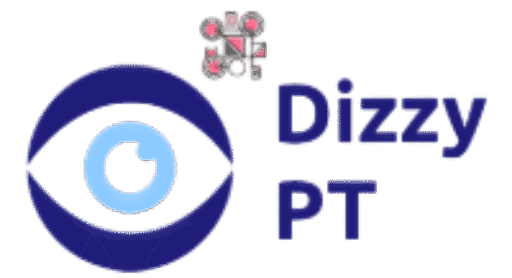Dizzy PT – In a world where our phones rarely leave our hands, taking a full break from technology may sound impossible. Yet, many are turning to the idea of a Digital Detox Weekend — a two-day escape from screens designed to restore mental clarity and emotional balance. But the question remains: is this a genuine mental health solution, or just another wellness trend?

The Screen Saturation Problem
From the moment we wake up to the time we sleep, screens dominate our lives. On average, people spend over 8 hours a day on digital devices. Whether it’s for work, social media, entertainment, or communication, the digital world has become nearly inescapable.
This constant connectivity, however, comes with side effects: digital fatigue, sleep issues, anxiety, and a growing sense of disconnection from the physical world. That’s why the Digital Detox Weekend concept is gaining popularity. It offers a structured break from digital inputs, encouraging people to be present in the moment.
Read more: “Extreme Weather 2025: Is Southeast Asia in Crisis?“
What Is a Digital Detox Weekend?
A Digital Detox Weekend involves switching off all digital devices — smartphones, laptops, tablets, and sometimes even smartwatches — for 48 hours. The goal is to disconnect from the online world and reconnect with oneself, others, and the surrounding environment.
According to experts at Dizzy PT, digital detoxing can provide multiple psychological benefits. These include reduced stress, better sleep, and improved attention span. When people are not constantly stimulated by notifications or scrolling, their minds can begin to unwind and recover.
Psychological and Emotional Benefits
Mental health professionals often recommend digital detox as a part of stress management routines. In a recent interview with Dizzy PT, psychologist Dr. Maya Lin explained:
“Digital noise keeps our nervous systems in a constant state of alert. Detoxing — even for a weekend — gives our brains a break and helps us reset emotionally.”
Studies support this. Research published in the Journal of Cyberpsychology shows that individuals who participated in regular screen-free weekends reported:
- A 25% drop in anxiety levels
- Improved quality of sleep
- Enhanced real-life communication and eye contact
- Greater emotional awareness
The change was especially notable among those who frequently used social media, which often fuels negative comparison and attention fragmentation.
Real-Life Testimonies
Many who have tried a Digital Detox Weekend share transformative experiences. Sofia, a 32-year-old teacher from Kuala Lumpur, told Dizzy PT that the detox gave her “mental space” she didn’t realize she needed.
“The first few hours were tough. I kept reaching for my phone without even thinking. But by Sunday, I felt calmer, lighter — like my mind had room to breathe again.”
Such testimonials suggest that detoxing can help restore a sense of control over one’s attention and time — two things often lost in a hyperconnected world.
Is It for Everyone?
Despite its benefits, a full weekend without screens may not be practical for everyone. Some people rely on digital tools for caregiving, work responsibilities, or essential communication. For them, cutting off entirely could cause more anxiety than relief.
Dr. Reza Tan, a behavioral therapist, explains:
“It’s not about demonizing technology. It’s about building healthier habits around it. If a full detox feels extreme, even reducing screen time by 30% over the weekend can be effective.”
Instead of quitting cold turkey, many experts now recommend partial detoxing — limiting device use to specific time blocks or turning off certain apps during downtime.
How to Do a Digital Detox Weekend Successfully
If you’re considering trying this for yourself, here are some strategies to make the experience more enjoyable and effective:
1. Plan Ahead
Let friends, family, or coworkers know you’ll be offline. Wrap up work and set an out-of-office response to prevent stress about missing emails.
2. Prepare Alternatives
Stock up on books, puzzles, art supplies, or anything you can do without a screen. Nature walks, journaling, and cooking are also excellent offline activities.
3. Use Analog Tools
Replace digital tools with physical ones — like using a paper planner instead of your phone calendar or an alarm clock instead of your phone alarm.
4. Reflect Daily
Take a few minutes each evening to reflect or write down how you feel. This helps build mindfulness and identify what digital habits you may want to change permanently.
5. Ease Back In
Once the weekend ends, don’t dive immediately back into digital overload. Keep notifications off for a few more hours or start the day without checking your phone.
Digital Detox vs. Digital Balance
While a full weekend offline may work wonders for some, others may find that digital balance is a more sustainable goal than complete detox. Building long-term habits — like no screens at the dinner table or one tech-free evening a week — can also promote mental well-being.
The key takeaway? Technology isn’t the enemy. It’s how, when, and why we use it that matters.
So, is a Digital Detox Weekend a myth or a real mental health solution?
Based on insights from health experts and personal stories shared on Dizzy PT, it appears to be a valuable and realistic strategy for those seeking a mental reset — especially in a world overloaded with digital input. While it might not be a cure-all, it offers a chance to slow down, be present, and remember what life feels like without constant connectivity.
As digital fatigue continues to rise, taking small steps to disconnect — even temporarily — might just be the best connection you make all weekend.



